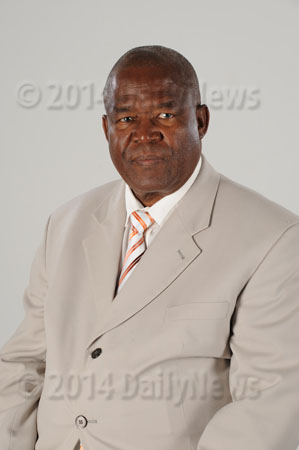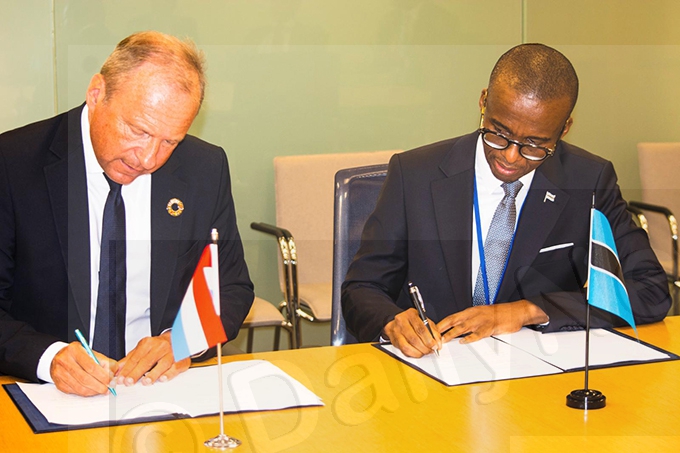SADC health ministers review progress on Ebola
12 Sep 2014
The Southern African Development Community (SADC) Ministers of Health met in Victoria Falls, Zimbabwe, from September 4 to 5, 2014 to review progress made since the last meeting that was held in Johannesburg, South Africa on August 6, 2014.
A communiqué from the SADC Secretariat says the meeting that was attended by SADC Ministers of Health, senior officials, World Health Organisation (WHO) and the SADC Secretariat was meant to address issues that had arisen since the last meeting.
The issues included challenges brought about by movement of people and goods across the region and to adopt a common SADC position on travel restrictions, and to get an update on member states preparedness and response status.
The communiqué says the ministers noted that the current outbreak in the West African states of Liberia, Nigeria, Sierra Leone, and Guinea Conakry has now spread to Senegal, adding that a separate outbreak not related to the one in West Africa has now occurred in the Democratic Republic of Congo (DRC).
The DRC, states the communiqué made a presentation on how they are responding to the current outbreak in the country and shared their experiences and ministers expressed satisfaction with efforts employed by e-government of DRC to contain and manage the outbreak.
The meeting also received an overview of ongoing Ebola outbreaks in the African region and the responses to date from WHO and also provided a forum for the region to understand the role and responsiveness of the SADC Secretariat Health Desk.
The SADC Secretariat further states that opening the meeting the chairperson of SADC health ministers, and also Zimbabwe’s minister of health and child care, remarked that the outbreak of Ebola Virus Disease and the persistent threat it poses, requires SADC region to take urgent measures.
“It requires the region to establish a consensus on the strategy for the response to the Ebola threat,” he added.
The chairperson informed the meeting that on August 27, WHO reported the two outbreak of Ebola in the DRC where 80 people were under surveillance. However, he emphasized that there are no Ebola cases reported in any of the other SADC member states, says the communiqué.
Dr Parirenyatwa also emphasised the need for cross-border consultations to facilitate exchange of information, and agree on joint collaborative actions and for SADC member states to strengthen surveillance, case finding and detection, reporting and contact tracing, and share information on Ebola with WHO in a timely manner.
After their deliberations, the communiqué says the ministers adopted a common regional position on travel of persons and trucks or commercial vehicle from Ebola affected countries.
The ministers also approved some restrictions on movement of people in line with the international health regulations (2005), to contain the disease at source.
The first restriction is that; people who have a history of coming into close contact with infected people and infected dead bodies or people and infected animals from Ebola Virus Disease (EVD) should be quarantined in the country for a period of up to 21 days and people who are coming from Ebola affected countries should be subjected to exit screening, says the statement.
It states that another restriction is that: people who are entering a country from an affected country as defined and advised by WHO, are to be subjected to screening and are to be followed up for a period of 21 days, but if it is absolutely essential for them to leave before completion of the 21 day period, the next country should be notified and should continue with the surveillance for the remaining period.
The communiqué further states that the ministers also approved that, member states should discourage their citizens from travelling to affected countries or high risk areas and their trips to be postponed for as long as it is possible.
Member states are to avoid hosting mass gatherings involving people from affected countries unless it is absolutely essential and an active surveillance and notification system is recommended for adoption across SADC member states.
In addition, the ministers agreed on standardising public health interventions to prevent the spread of EVD into their respective countries.
It further notes that the common interventions include; procurement and prepositioning of personal protective equipment, training of health workers, sensitisation of stakeholders, identification and equipping of isolation or treatment centres, laboratory diagnosis, screening of travellers at all critical points of entry or exit.
The ministers noted the pivotal role played by the media in the dissemination of information and encouraged member states to engage the media in as transparent a manner as possible to inform, educate, dispel rumours and demystify issues around Ebola.
Giving a vote of thanks, the deputy chair of SADC health ministers and also minister of health, Dr John Seakgosing expressed his gratitude to all SADC member states for the exemplary and progressive leadership demonstrated at both executive and political levels to keep the SADC region free of not only Ebola, but other communicable diseases, says the statement. ENDS
Source : SADC
Author : SADC
Location : GABORONE
Event : Official communiqué
Date : 12 Sep 2014







